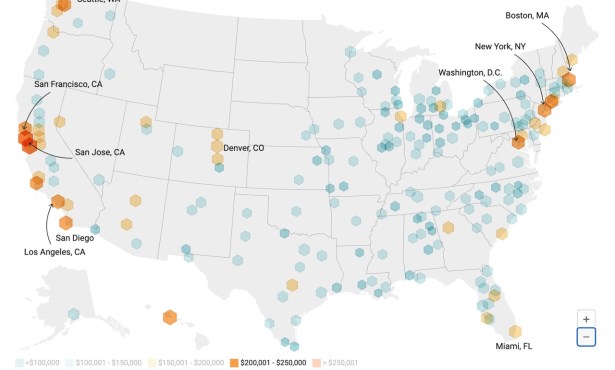Ten Years and 697 Housing Units Later, Santa Barbara’s High-Density Housing Program May Be Ready for Prime Time
Ordinance Committee Recommends Making AUD Program Permanent; City Council to Make Final Decision

A one-time temporary and experimental program designed to incentivize the development of rental housing deemed “affordable-by-design” looks as if it’s on track to be made permanent. The Ordinance Committee of the City Council voted 2-1 this Tuesday to eliminate the existing sunset provision for what’s known by the awkward acronym “AUD,” short of Average Unit-Size Density; if the whole council concurs, this means the program can continue indefinitely.
The AUD program rewards housing developers with the promise of significantly higher-than-usual building densities. In addition, the parking requirements for AUD projects are half of those built under traditional zoning. City planners argued making the program permanent is necessary because potential developers have been chased away from participating by the program’s uncertain future.
When first adopted in 2013, the program — which envisioned projects with more but smaller units with less parking — was slated to sunset after eight years or after 250 housing units were built. To date, the program’s expiration date has been pushed back three times and 43 projects have been built, which cumulatively translate into 697 units. That doesn’t include the other 51 AUD projects approved but not yet built. They account for another 742 units.
While the program has unquestionably generated an unprecedented increase in the development of rental housing, only 22 percent of the units qualify as “affordable” or below market. In 2018, units built under the AUD program were 12 percent higher than citywide median rents. The following year, they were 17 percent higher, and the year after that — 2020 — they were 20 percent more expensive.
In arguing against the elimination of the program’s sunset, Councilmember Kristen Sneddon cited the lack of affordability of the units generated. To remove the expiration date, she argued, would indicate the program has been a success. It has not been.
Councilmember Mike Jordan said the expiration date should be eliminated if only because city planning staff is so stretched thin already trying to figure out, for example, how the 52 new housing bills Governor Gavin Newsom just signed will affect how the City of Santa Barbara processes housing applications. Jordan said there was no shortage of ways the ordinance needed to be tweaked. Having to extend the expiration date, he said, unnecessarily complicated the matter.
Councilmember Oscar Gutierrez, who chairs the Ordinance Committee, made no comments on the merits of the program or eliminating the expiration date, but voted in favor of forwarding the matter to the council as a whole.



